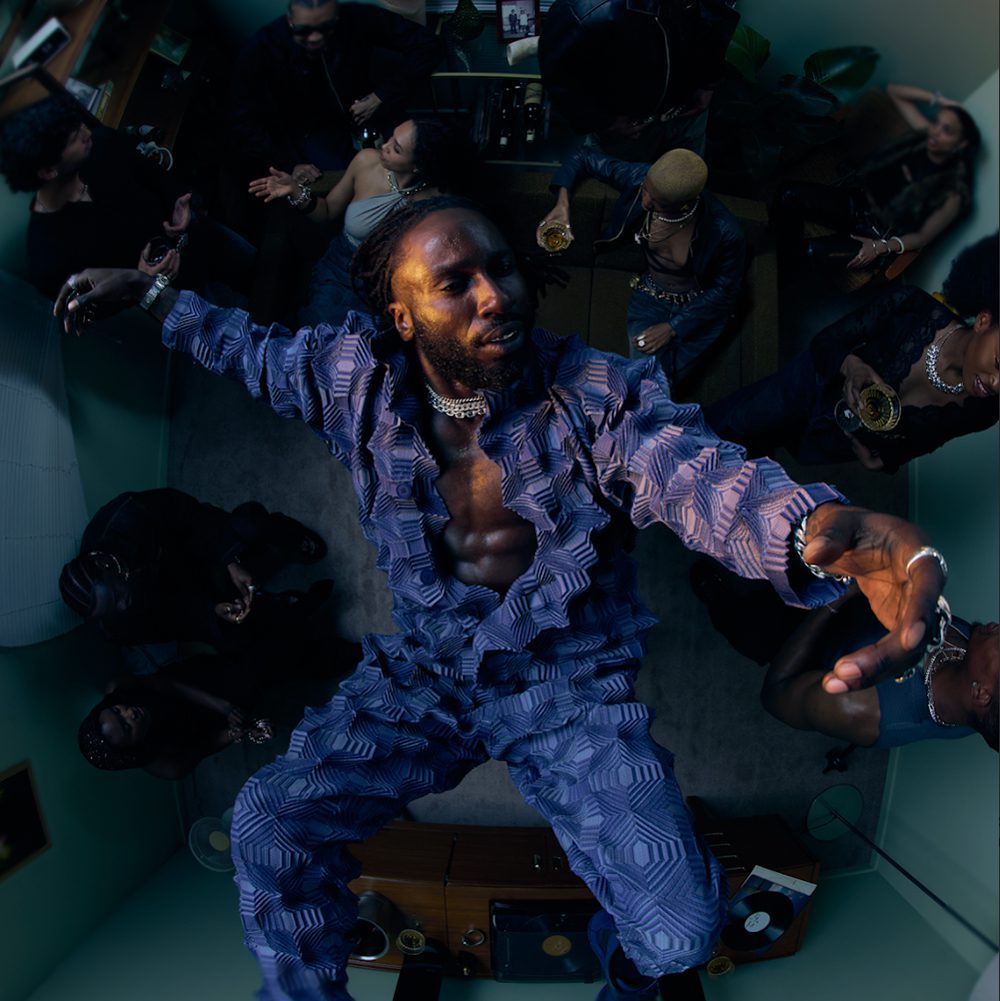Prelude Press

Prelude Press – An independent music outlet focused on discovering and sharing the best emerging artists and diving deeper with the ones you already love.
East London’s own multi-hyphenate artist and rapper Kojey Radical has released his sophomore album, Don’t Look Down, via Asylum Records UK/Warner Music UK. The project boasts an impressive roster of collaborators, including Ghetts, Bawo, MNEK, Dende, James Vickery, Planet Giza, Cristale, Benjamin A.D, Col3trane, SOLOMON, Victor Ray, Jaz Karis, and Chrissi. 16 tracks long, Don’t Look Down is a musically rich and deeply introspective reflection on the shifting tides, lows, and joys that have passed through his life since his emergence into the public eye. Set among an arresting musical backdrop, brimming with soul and vivid instrumentation, is a story of loss and renewal, hedonism and celebrity, fatherhood and friendship. Sonically, the album provides the most experimental and eclectic music of his career, with influences ranging from golden age Hip Hop to disco, grime to Indie, Jazz to Ska. Together, these strings combine to give a pertinent insight into Kojey’s inner world, and a timestamp documenting the feelings, emotions, and experiences that arise when many reach the milestone of their 30s. Out of this personal, poetic rumination emerges something universal, a human story of losing your way and the journey to find yourself again. A relatable journey of reaching the milestone of your 30s without having life all the way figured out.
“I wanted to make this album more personal and more honest, we have to be able to accept that the messenger has flaws and all,” says Kojey. “So if I can’t give you me from a real perspective, as someone who hasn’t got it quite all the way figured out, then how are you supposed to trust me?”
For Kojey, Don’t Look Down captures the last few years of scaling professional and musical heights, and how that climb reshapes a person’s outlook and relationships. Success brings both the fear of falling and the fear of climbing higher, knowing how much there is to lose. Rooted in the shift that followed the enormous success of Reason to Smile (2022), the album reflects the transition into one’s 30s, when old anchors slip away and life reshapes itself, forcing you to find solid ground again. This tension threads through the record. On “Rotation” and “Life of the Party”, he wrestles with internal doubts: “I live in the fear of starting again and again… I don’t know who to trust / I got too many friends, being the life of the party,” he sings over Swindle, Ashton Sellars, and Emil’s production. “Conversation” deepens this theme, opening with a whisper: “Sometimes you’re too afraid to find out the party continues even after you leave.” He likens it to stepping out for air only to realize the sun is rising and the world has moved on, relationships too. Fatherhood emerges as one of the album’s most defining threads. On “Life of the Party” he reflects, “My little one just turned four, he look just like me / His mama pray he don’t grow up just like me.” On “Curtains”, he admits, “I hate that I hold onto trauma, twinning with the traits that I got from my father.” His son’s voice surfaces in recordings throughout, and the closing track “Baby Boy” with fellow East Londoner Ghetts brings the theme to a powerful close. Across four and a half minutes, he shares the joys and anxieties of fatherhood, hopes for his son, and reflections on the history that shapes their bond.
To accompany Don’t Look Down, Kojey has been sharing a short film with intimate audiences over the past few months. The piece stitches together three music videos—Rule One featuring Bawo, Conversation, and Baby Boy featuring Ghetts—into a seamless cinematic journey. Subtle cameos of album tracks “Expensive” and “Everyday” also slip into the narrative, enriching the experience with unexpected layers. Directed by Relta, the project grew from Kojey’s desire to reintroduce care and artistry into the music video format, inspired by the striking visuals he grew up watching. When offered the chance to make a standard video, Kojey resisted convention. Instead, he turned to Relta to craft something more ambitious, something that transcended the typical format. Shot almost entirely within the confines of four walls, the visuals capture both real-life moments and the intimacy of the album itself. The result reflects Kojey with disarming honesty, no bravado, no ego, just truth. Resonating deeply with audiences, the film explores themes of co-parenting, life after the party, self-reflection, and the fear of failure.
